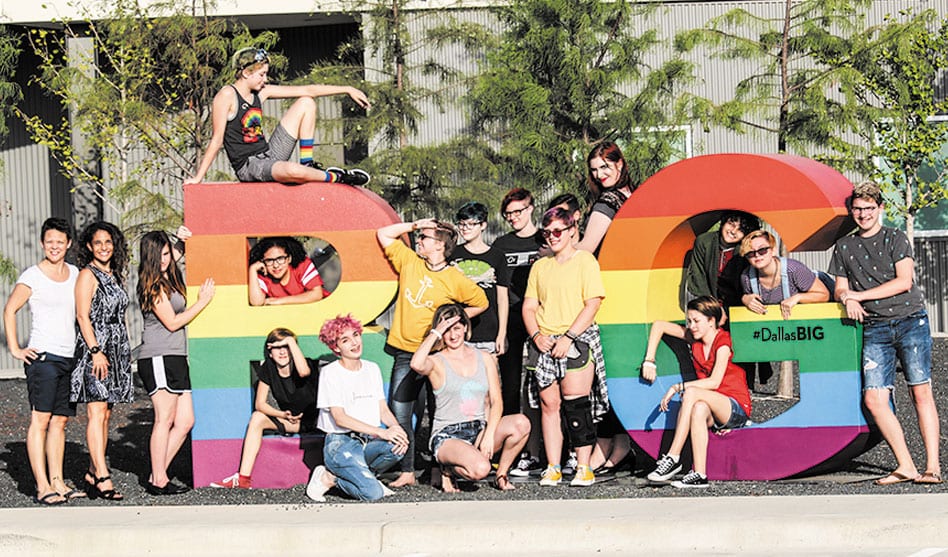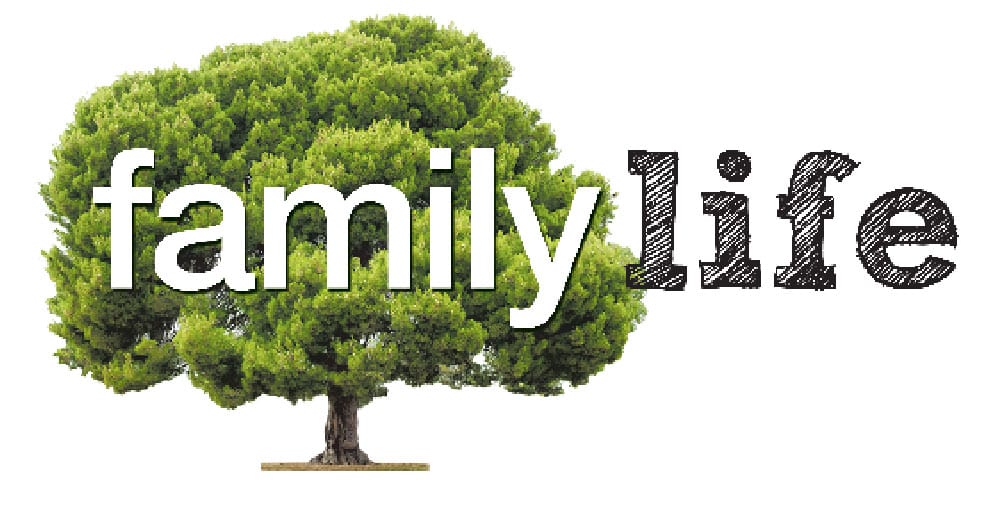Noelle Carmen, went from conservative home-schooling mom to gay activist, resulting in a new play that embraces queer youth.
A coming-out story across generations triggers outreach to queer youth
It wasn’t that long ago that being queer and being young did not make for a good combination. Even during the 1990s, as attitudes toward the LGBTQ community changed, coming out seemed like it was still “for adults.” Even if you knew you were queer in your heart, you waited until after high school to start the difficult process of being honest about who you were (especially in many parts of Texas).
Things have improved, of course — it seems folks are understanding and proclaiming their own identities at a much younger age, even in grade school. But it’s a mixed bag. Queer youth are at a higher risk of suicide than their straight counterparts. Some studies say up to 40 percent of LGBTQ teenagers consider taking their own lives.
But every day, there are signs that things are. Next month, for instance, Lantern Theatrical Productions is producing an original play called Queer Occurrences, billed as “A good old-fashioned LGBTQ comedy, romance, and murder mystery.” LGBTQ murder mysteries are rare enough, but this one is even more special: Its cast consists of teens from the Resource Center’s Youth First. And its being performed at the Rosewood Center for Family Arts, home of the Dallas Children’s Theater. A queer youth play at an established family theater? It’s something that most likely wouldn’t have happened 10, 20 years ago.
 Queer Occurrences was written by AD Carmen, the 22-year-old daughter of Lantern’s artistic director, Noelle Carmen. Mom helped develop the plot and themes (the pair have worked on original plays together for years). “We were like, ‘Oh, let’s do an LGBTQ play!’” the elder Carmen says. “The last play I directed was The 39 Steps, so we took all that type of campiness and threw it into a queer context.”
Queer Occurrences was written by AD Carmen, the 22-year-old daughter of Lantern’s artistic director, Noelle Carmen. Mom helped develop the plot and themes (the pair have worked on original plays together for years). “We were like, ‘Oh, let’s do an LGBTQ play!’” the elder Carmen says. “The last play I directed was The 39 Steps, so we took all that type of campiness and threw it into a queer context.”
Queer Occurrences features a gay romance, and Carmen says she encouraged the young performers to use their preferred pronouns both on and off the stage. “It’s a vehicle for them to be who they are and to be in a safe space,” she says. “Theater in and of itself is liberating. But an LGBTQ youth show where we have lots of gender neutral characters, and they got to create their own genders for the show… it’s very validating for them.”
Not that long ago, Carmen was the last person you’d expect to produce an LGBTQ youth play. As of about a year ago, she had been married to a man for 27 years, the mother of five and was deeply involved in a home-school community. Despite the fact that all had come out to her, she held on to her own bias. “I was living as this conservative home-school mom,” she says. “I had that really conservative mentality. My daughter was 16 when she came out and I said all the wrong things to her: ‘It’s just a phase.’”
But then something happened. Carmen divorced her husband. A few days later, she realized that she, too, was lesbian.
“It was only like a day or two after I filed,” she says. “I had to look at it then. And then I had to go face my kids — who I didn’t handle properly when they came out — and be like, “OK, I’m gay, too. Fine, we’re all gay. We’ll figure this out!” she says with a laugh. “They were so happy and so shocked. I remember I sat them all on the edge of the bathtub because that was the place. I don’t know why, but that was the place. And my 13-year-old literally fell back into the tub.”
As she and her kids transitioned from conservative home-schoolers to an LGBTQ family, they found themselves more and more isolated from their former community. They took refuge in something they all still loved — theater — and also in the Resource Center. That’s where Carmen started meeting the youth who she cast in Queer Occurrences. “I realized, ‘God, these kids would be great on stage,’” she says. “They came into the auditions a little scared, and now I watch all of their beautiful little souls unfold. One of the reasons I went campy is that I didn’t know the kids that well, and I knew that even if they were horrible actors we could do over the top and still put together a good production. It turns out they’re spectacular.”
Being a teenager is tough enough. Being an LGBTQ teenager can be an even heavier burden. Being able to open up and express yourself on stage can be terrifying. But it also is a way to transform inner struggles into something transformative.
“It’s the whole process of learning to be real and authentic and showing your true vulnerable self even when it’s scary,” she says. “I’d love for people to come to the show and take some of that away with them and apply it to their own life.”
— Jonanna Widner


